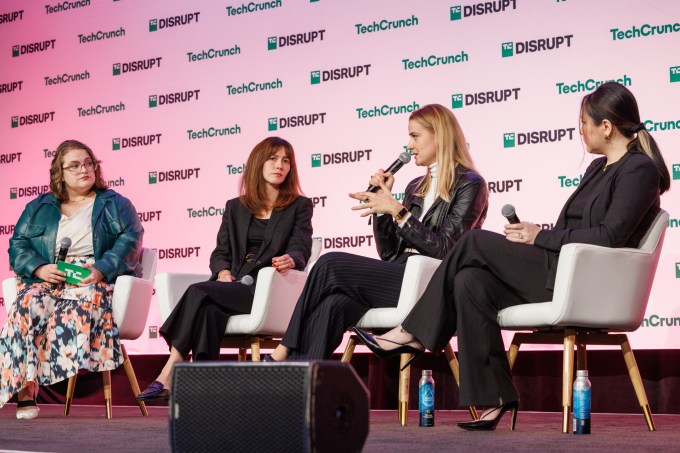At TechCrunch Disrupt 2024, AI safety advocates stressed the importance of careful development in artificial intelligence. Sarah Myers West from the AI Now Institute warned that rushing to release AI products can lead to long-term ethical problems. With ongoing lawsuits and concerns about AI’s impact, now is the time for startups to prioritize thoughtful design. Jingna Zhang, founder of the artist platform Cara, highlighted the risks artists face from generative AI using their work without permission, emphasizing the need for copyright protection. Aleksandra Pedraszewska from ElevenLabs echoed the need for proactive measures to prevent misuse of AI technology, suggesting that a balanced approach to regulation is essential for safe AI innovation.
At the recent TechCrunch Disrupt 2024, three AI safety advocates shared important views on the rapid development of AI technologies and the potential ethical issues that may arise. Sarah Myers West, co-executive director of the AI Now Institute, emphasized the urgency of considering the long-term impacts of AI products on society. She expressed concern that the quick pace of releasing AI technologies could overlook crucial questions about the kind of world we want to create and what role these technologies should play.
The discussion comes in light of serious incidents involving AI, including a lawsuit against the company Character.AI related to the tragic death of a child. This case highlights the real-world consequences that can stem from rapidly developing AI tools without adequate safety measures.
Jingna Zhang, founder of the artist-focused platform Cara, also spoke about the challenges artists face in protecting their work as generative AI becomes more prevalent. She pointed out that policies allowing companies to use artists’ public posts for AI training can undermine their livelihoods and called for better copyright protections.
Aleksandra Pedraszewska from ElevenLabs, a company specializing in AI voice cloning, underscored the need for thorough safety measures in developing such powerful technologies. She highlighted the importance of engaging with the user community to address any potential harm caused by AI tools.
Overall, the event stirred a conversation about finding a balance between innovation and ethical responsibility within the AI space. Advocates are pushing for a collaborative approach to regulation that ensures technology serves society positively while safeguarding against potential dangers.
For more insights on AI and technology, sign up for TechCrunch’s AI-focused newsletter, delivered every Wednesday.
-
Why should AI founders slow down their development?
Slowing down allows time to think about safety and ethics. It helps ensure AI is built responsibly and doesn’t cause harm. -
What do you mean by AI safety?
AI safety means creating AI systems that act in ways that are safe and beneficial for people, avoiding risks and unintended consequences. -
How can taking more time benefit innovation?
Taking more time can lead to better designs and ideas. It helps to identify potential problems early, which can save time and resources later. -
What role do ethics play in AI development?
Ethics guide how AI should be used and its impact on society. Making ethical choices helps build trust and ensures technology benefits everyone. - What can founders do while they slow down?
Founders can focus on research, collaboration with experts, and engaging with the public to understand concerns. This helps make informed decisions for safer AI.






